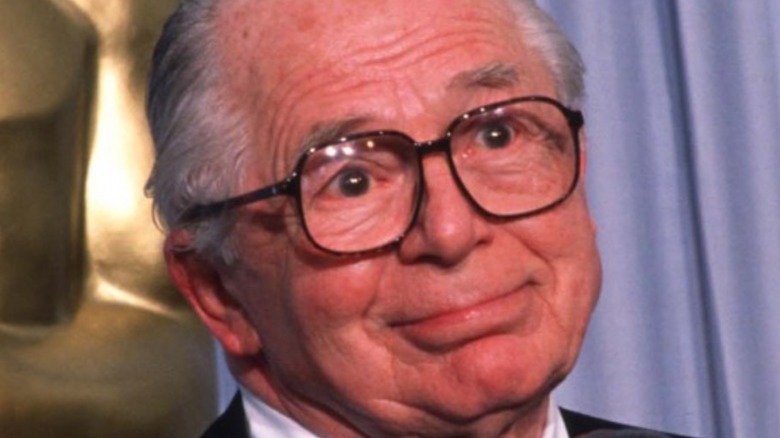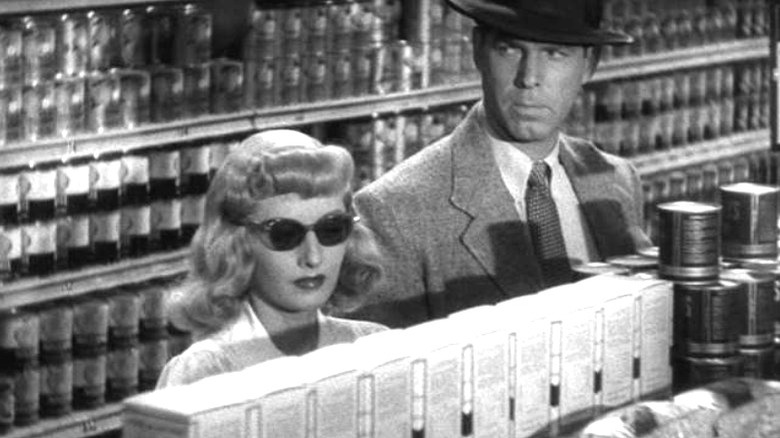The Key To Directing According To The Legendary Billy Wilder
The Golden Age of Hollywood provided the art of filmmaking with numerous iconoclastic filmmakers. Directors such as Orson Welles, John Ford, Cecil B. DeMille, and many more made one classic film after the next. And they did so within the limitations of the Motion Picture Production Code or Hays Code, which was enforced from 1934-1968 (via ACMI). But there was one moviemaker that pushed the censors nearly to the breaking point to create a level of realism not normally found in classic Hollywood: Billy Wilder, who was considered one of the first realists in American film (via Sense of Cinema).
Wilder's movies were not unique in that most were comedies, but he was a pioneer in creating dark comedies at a time when audiences were used to slapstick. Wilder also had a penchant for upending common and archaic Hollywood practices, which is best exemplified in his 1950 classic "Sunset Boulevard." Like her character in the film, actress Gloria Swanson was a star of the silent film era, while William Holden was a contract player for Paramount at the time of casting.
This adds a meta layer to the film, since neither of these choices was conventional in terms of casting a major star player or using the typical contract system in place by the studios. But this was part of Wilder's exceptional storytelling abilities. As an influence on several filmmakers over the decades, the director's advice to new directors is simple.
Billy Wilder says knowing how to read and interpret are the most important tools for a director
Some of Wilder's trademarks include attention to detail and showing more than telling, which can be witnessed all throughout a movie like 1944's classic film noir mystery "Double Indemnity." When asked about his vision as a director in tandem with the script in a 1976 interview with the American Film Institute, Wilder commented, "It is very important [that a director] knows how to read." He shared an anecdote about a script he wrote, which included a visual gag that required a man to have a long beard. But when he saw it on-screen, the man just had a small goatee that made the joke nonsensical. An exasperated Wilder noted that without reading, "[Directors] just don't think."
Wilder's statement implies that screenwriters create a movie's story, and the filmmaker is responsible for reading and interpreting the script to execute a distinct and clear visual image of every scene. Writing is not important for a director, but the ability to read and absorb the material in the screenplay visually certainly is.
Other influential directors have also emphasized the importance of reading for filmmaking. In a 2014 interview with Quill & Quire, Christiane Kubrick, the widow of Stanley Kubrick, was asked if her husband was a reader, to which she replied, "He was voracious. And fast. I admired and envied him – he could really swallow a book in a night, and it wasn't superficial reading, either." Billy Wilder's words speak a truth about filmmaking that fundamentally connects it to other storytelling art forms.

